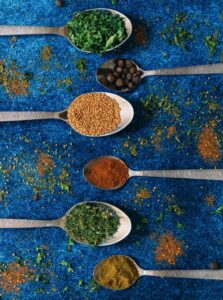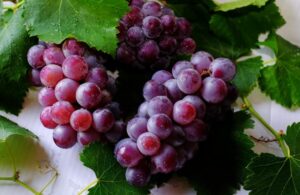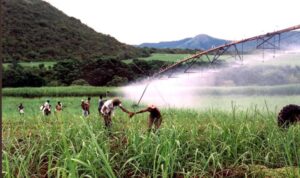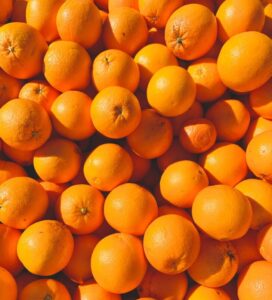Introduction
- Compost works best when applied to the soil before planting.
- Compost can also be used as mulch – the protective cover placed over the soil to keep moisture in, reduce erosion, provide nutrients and prevent weed growth. Advice on saving water on the farm usually includes (1) Use more mulch and compost combos and (2) keep the crops covered.
- The steep increases in the cost of inorganic fertilisers and pesticides (many derived from petroleum products) have led many farmers to look at replacing them with organically-derived composts.
- Continual use of inorganic products have sterilised the soil and killed off the billions of micro-organisms that occur in nature. Reducing (or eliminating) the use of inorganic products and replacing them with organic products brings the micro-organisms back into the soil. These micro-organisms bring depleted soils back to life and provide all the necessary nutrients for healthy plants.
- When plants have a good, solid food supply at the roots, they are able to combat diseases more effectively than poorly-fed plants. Using composts as fertiliser and plant food ensures a supply of food throughout the growing season and not, as occurs with inorganic fertilisers, a huge boost when applied but a starvation when this is used up or leached out.
Source: Ronald Thomson; Water Wise (Rand Water)
Use more mulch and compost combos (Saving water on the farm)
You can use de-composed organic matter to improve your soil structure and increase its water-retention volume.
“Mulch is a material spread over the top of the soil to keep moisture. Mulch prepared from organic materials such as wood chips or straw will be broken down into compost, further increasing the soil’s water retention ability,” Talisa Water’s experts say. A combination of this mulch and your regular compost can help the ground hold more water in dry spells.
You can also use ‘black plastic mulch’ to cover soil and squash weeds while cutting down water evaporation at the same time. This mulch is basically the same as traditional wood chip mulch, but with added plastic particulate to prevent the sun from drawing more water than you want it to.
Source:[now defunct] https://bizconnect.standardbank.co.za/sector-news/agriculturearticles/4-realistic-ways-you-can-save-water-on-the-farm.aspx
Compost
“Integrated crop-livestock systems improve soil health (if done properly). Leaving animals on field means more nutrients on the land and higher Carbon sequestration” (Hendrik Smith, Grain SA).
- Compost is formed in nature all the time as plants and animals die and decompose. This natural compost is generally called “humus”. Decomposition involves the breakdown of plant and animal remains into simpler components. As a result nutrients, which are essential for plant growth, are released into the soil. The process of decomposition is essential for the recycling of nutrients.
- Good compost is an excellent source of beneficial organisms and organic matter. Compost returns nutrients to the soil, increases the soil’s ability to hold water and air, and prevents erosion by binding the soil.
- Anybody buying bulk compost is advised to seek professional help in choosing a supplier as, in any industry, there are good and bad composts!
Sources: Jako Pieterse; Don Blacklaw; Ken Reid; Ronald Thomson
Liquid composts (compost tea)
Compost tea is the cheapest and fastest way to improve soil fertility. Compost tea is made by adding compost to water and multiplying specific micro-organisms. Compost tea restores the biological balance again and improves soil structure and counteracts compaction.
Green manure/cover crops
- Find the document “Cover crops: what are they and what are they used for?” at www.kzndard.gov.za.
- Refer to the separate “Conservation agriculture” page.
Earthworms
See the separate “Earthworms and vermicompost” page.
Role players
Agricultural Colleges offer short training courses on making compost. An example is Madzivhandila College, which can be contacted at 015 962 7200/7/8. Contact details for all Agricultural Colleges can be found on the “Agricultural education and training” page.
Role players
Websites and publications
See the “Organic farming” , “Speciality fertilisers” and “Soils” pages.
Visit websites of role players for a wealth of information.
Beck M. 1997. The Secret Life of Compost. Texas: Acres.
Find the Guidelines “Using manure to supply plant nutrients” on the KwaZulu-Natal Department of Agriculture website, www.kzndard.gov.za.
Subscribe to the monthly Ecosoil newsletter. Write to jako [at] ecosoil.co.za.
Call 012 842 4017 or email iaeinfo [at] arc.agric.za to obtain the following publications, available from the ARC in Silverton:
- Kompostering en komposteringstelsels
- Composting and composting systems
- Besproeiing met dieremiswater
- Irrigation with animal manure water
Visit www.kejafa.com for several compost-related publications, available from Kejafa Knowledge Systems.
Find the “Composting and manure utilisation manual” farmer handout at www.mahlathini.org, website of the Mahlathini Development Foundation (MDF).
Find the notes on the Soil Foodweb Inc website: www.soilfoodweb.com.
The Info Paks (booklet) Using Kraal Manure (as a fertiliser) and Making organic fertiliser can be viewed (and downloaded) at www.dalrrd.gov.za. See also Vegetables – Manure and other organic fertilisers, Vegetables – Mulching and Vegetables – Compost.
Hands On: Soil And Compost Life – A Field Guide. I. van den Berg. Share-Net, PO Box 394, Howick, KwaZulu-Natal, 3290. Tel: 0860 240 240
Soil Is Life: A Handbook For Teachers. M. Roos (ed). Share-Net, PO Box 394, Howick, Kwazulu-Natal, 3290. Tel: 0860 240 240.
Some articles
- MacLaren C. 2022, August 29. “Farming and fertilisers: how ecological practices can make a difference”. The Conversation. Available at https://theconversation.com/farming-and-fertilisers-how-ecological-practices-can-make-a-difference-188470
- Staff reporter. 2022, May 28. “Compost problems, and how to fix them”. Farmer’s Weekly. Available at www.farmersweekly.co.za/farming-basics/how-to-crop/compost-problems-and-how-to-fix-them/
- Phillips L. 2019, December 27. “Large-scale composting turns waste into healthy soil”. Farmer’s Weekly, pp. 52 – 55.
- Genis, A. 2018, December 3. “Delgewasse kan vir wins bestuur word, se landbou-ekonome”. Landbouweekblad. Available at www.netwerk24.com/landbou/Bedrywe/Bewaringsboerdery/dekgewasse-kan-vir-wins-bestuur-word-se-landbou-ekonome-20181203 [an article in Afrikaans about cover crops]
- Kerr, B. 2018, November 2. “The benefits of organic matter”. Farmer’s Weekly. Available at www.farmersweekly.co.za/crops/vegetables/benefits-organic-matter/
- Uys, G. 2018, June 21. “Pursuing soil health precisely”. Farmer’s Weekly. Available at www.farmersweekly.co.za/crops/field-crops/pursuing-soil-health-precisely/
- Taking crops off the land without returning nutrients to the soil is called “mining” the soil. If you do this for some years, your crops may grow slowly, have a stunted appearance (small plants with thin stems and small leaves), have pale green or yellowish leaves, and produce a poor yield. Find the Farmer’s Weekly article “How to cure your soil after years of nutrient depletion” at www.farmersweekly.co.za/farm-basics/how-to-crop/cure-soil-years-nutrient-depletion/.
- Reporter. 2018, April 9. “The Importance of Composting in SA”. Country Life. Available at www.countrylife.co.za/diy/38951
- Hodgson S. 2017, March 17. “The benefits of cover crops for CA smallholder farmers”. Farmer’s Weekly. Available at www.farmersweekly.co.za/farm-basics/how-to-crop/benefits-cover-crops-ca-smallholder-farmers/
- Moolman, K. 2014, November 17. “5 ways to make your own fertiliser”. Garden & Home. Available at www.gardenandhome.co.za/gardening/how-tos/5-ways-to-make-your-own-fertiliser/






